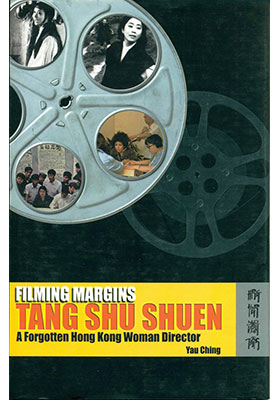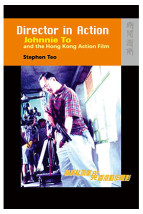Filming Margins
Tang Shu Shuen, A Forgotten Hong Kong Woman Director
(唐書璇:被遺忘的香港電影女導演)
ISBN : 978-962-209-689-9
September 2004
304 pages, 6″ x 9″
- HK$375.00
Ebooks
Also Available on
This book studies the work of filmmaker Tang Shu Shuen in Hong Kong in the 1960s and 1970s. It raises issuesregarding the applicability of paradigms of Western auteurism and feminist authorship in studying Tang’s work and also examines the reasons why Tang Shu Shuen’s work has been so underrecognised and underdiscussed historically. Through examining the production and reception structures of Tang Shu Shuen’s work, this publication attempts to shed light on the development of Hong Kong’s film industry and the evolution and problems of Hong Kong’s cultural identity in the 1960s and 1970s.
“Through the examination of the work of a female director, whose contribution to Hong Kong cinema was so belatedly, reluctantly, and still only partially recognized, Yau makes a strong case for re-evaluating film scholarship in Hong Kong. Her eloquent writing engages readers in a multi-level investigation of the patriarchal system which fails to appreciate one of its best. This very well researched project has connected itself broadly to the cine-feminist debatesof the West while re-contextualizing such debates within an equally well researched local Hong Kong context.” —Jenny Kwok Wah Lau, Professor in Film, Cinema Department, San Francisco State University
“Yau Ching elegantly uses her personal experience as a Hong Kong born scholar/artist/filmmaker to unravel one of the most fascinating enigmas in contemporary Hong Kong film history: the alluring figure of Tang Shu Shuen, who directed four films, became a cult figure almost to the point of festishization, and then disappeared. Drawing from extensive historical and theoretical research, Professor Yau raises thought-provoking questions about the nature of female authorship, cultural hybridity, feminine masquerade and gender representation in the Hong Kong film industry. A must for every student and scholar in cinema studies, the book fills a gap by finally producing a well-informed critical discourse on a major female director.” —Berenice Reynaud, California Institute of the Arts; Author, Nouvelles Chinese, nouveaux cinemas (Paris, 1999) and Hou Hsiao-hsien’s A City of Sadness (London, 2002).




